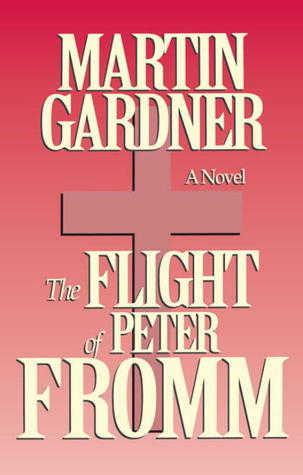What do you think?
Rate this book


288 pages, Paperback
First published January 1, 1973
"... he had one rare, refreshing trait, a constitutional inability to accept any form of intellectual evasion."(9)The story is narrated by a mentor professor/preacher who virtually adopts Peter during his years at the seminary as an extended member of his family. The professor is a Unitarian minister, but in private conversations admits that he doesn't believe there is a God. Early in the book the professor explains the demands on his profession as,
"To be a Protestant minister today, in the typical church of a prosperous suburb, one must be as skilled as a politician in the rhetoric of ambiguity, circumlocution, and double-talk." (9)The problem for Peter near the end of the book is that he has finally arrived at the end of his studies with a PhD in theology, and he now has to face the prospect of entering a profession where he will be expected to deliver a weekly sermon to a church congregation.
"I feel the way young Barth must have felt...The good people of my flock will be sitting there, looking up, expecting me--expecting me!--to talk to them about God, to tell them what they should believe and what they ought to do. How can I do that when I don't know myself what to believe or do?" (207)His professor/mentor explains his choice.
"...you have to choose between being a truthful traitor or a loyal liar." (208)Peter has arrived at a point where intellectually he's a secular humanist but he still possesses remnants of the former Pentecostal within his heart. These dissident feelings lead to a climatic ending where he experiences a psychotic break while delivering an Easter sermon (or maybe it's an ecstatic spiritual experience; it would make a heck of a movie scene).
"Faith is Quixotic. Faith is absurd. Who can pretend to understand it? There's a deep mystery about it. It's tied up with the enigmas of God and free will, with the incredible fact that a world exists and we're in it and we know we're in it and we know we'll soon not be in it. Faith is a kind of madness. I don't deny it. I can't explain why I believe. I only know I can't not believe." (271)The professor says he believes that Peter is evading all the dilemmas of theism by calling them mysteries. Peter answers,
"I don't think it's evasion. It's just an honest confession of ignorance. Thinking about anything has to end finally in mystery. And why not? After all, we didn't make the world any more than the jellyfish did." (272)I have given the book five stars because I admire the skill of the author to explore this subject in such depth in a readable novel. However, this book isn't for everybody. People who haven't passed through a similar faith journey will find the book to be nonsensical. This book is a novel, however it is set within a real historical setting with many references (sometimes including page numbers) to real theological literature and their authors. As such this book is more about theology than it is fictional literature. But of course, I know there are many of you readers out there who consider those two as being the same thing.
 Perhaps Calvin will grow up to be another Peter Fromm.
Perhaps Calvin will grow up to be another Peter Fromm.